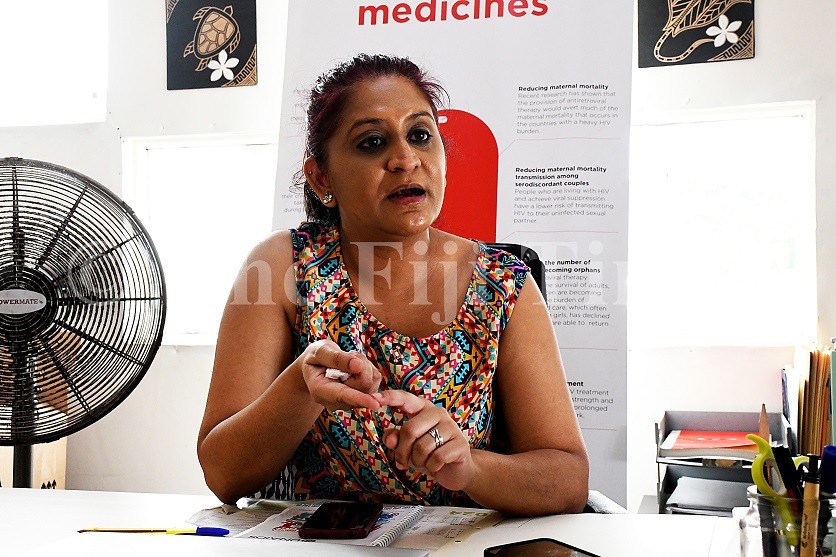BLUETOOTHING, it’s the new way of getting high and getting HIV.
And health authorities say this form of getting high is tearing the roof off the HIV infection rate nationwide.
The practice involves an injecting drug user (IDU) plunging a syringe of diluted methamphetamine into a bloodstream, drawing first blood and sharing the syringe with a second person, who can then pass it on to a third.
This, says Dr Dashika Balak, is a common tale shared by their clients who seek HIV-related services at their Suva clinic.
Dr Balak, the senior medical officer in charge of the Central and Eastern division’s Sexual and Reproductive Health Clinic, said ‘bluetoothing’ basically means a person injects a potent dose of a drug into their own vein and then they withdraw blood, and that blood is shared among people.
“For our setting, the common drug used is meth,” Dr Balak said.
“Meth usually comes in powdered form and you have to dilute it, and the easiest way of diluting it is heating it up.
“So, once it is diluted, they draw it into a syringe and then inject it into their veins.
They inject it into their veins, then they draw out their blood mixed with the diluted meth and that blood will be shared.”
Dr Balak said bluetoothing among injecting drug users (IDUs) who’ve visited their clinic was done with a “twist”.
“One of the common things that they do over here is they take the syringe with the diluted meth, they withdraw blood into the same syringe, they mix it and they inject that blood mixed with the meth into their veins.
“The person who is injected first then withdraws their blood and shares it with other people.
“The risk (of getting HIV) is higher because you are sharing blood.”
Dr Balak said HIV was not the only illness that could be transmitted through bluetoothing.
“We are not just talking about HIV here.
“We are focusing on HIV because the numbers have gone really high, but remember there are two other diseases that are also very highly spread by injecting blood and that is Hepatitis B and C.”
She said HIV clinics across the country have been working with government stakeholders and partners to address the illnesses cropping up in light of the drug problem now rampant in Fiji.



